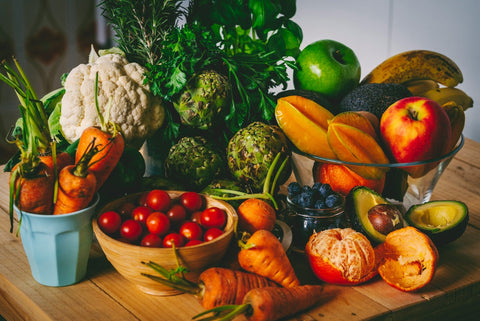Metabolism is often seen as the magic switch that controls how easily we gain or lose weight. Still, in reality, it’s a complex biological process responsible for converting food into energy.
Beyond weight management, metabolism plays a vital role in maintaining energy levels, hormone balance, and overall health. While many people seek quick fixes or supplements, the truth is there are practical and sustainable strategies for how to boost metabolism naturally through diet and lifestyle.
Understanding Metabolism

To understand how to influence your metabolism, it’s essential to grasp what it actually is. Metabolism refers to all the chemical processes your body uses to function—breathing, digestion, circulation, and more.
Your Basal Metabolic Rate (BMR) is the energy your body needs at rest to maintain these functions (1). The thermic effect of food (TEF), which is the energy used to digest and process meals, and your physical activity level also contribute to your total metabolic rate.
As we age, metabolism naturally slows due to muscle loss, hormonal shifts, and reduced physical activity. However, lifestyle choices—especially what we eat, how we move, and how we manage stress—can influence metabolic function at any age. With the right approach, it’s possible to reignite metabolic efficiency using natural metabolism boosters that support energy, strength, and well-being.
Metabolism-Boosting Foods

What you eat can significantly affect your metabolic rate. Certain foods require more energy to digest, provide nutrients that stimulate thermogenesis, or support muscle preservation and gut health—all of which play a role in improving metabolism.
Protein-rich foods like eggs, legumes, poultry, and fish top the list of the best foods to boost metabolism. They have a high thermic effect, meaning your body uses more energy to digest them compared to fats or carbohydrates. Protein also supports muscle repair and growth, which is important because muscle tissue burns more calories than fat, even at rest (2).
Spicy foods, particularly those containing capsaicin from chili peppers, may offer a temporary increase in metabolic rate. While the effects are modest, regularly including spice in meals can slightly enhance calorie burn and appetite control (3).
Green tea and coffee provide natural caffeine, which is known to stimulate the central nervous system and enhance metabolic rate. Green tea also contains catechins—powerful antioxidants that further assist in fat oxidation. Combined, they act as effective natural metabolism boosters that can improve both energy levels and fat burning (4).
Whole grains and fiber-rich foods such as oats, brown rice, and quinoa support metabolic health by aiding digestion and keeping blood sugar levels stable. Digesting complex carbohydrates requires more effort than simple sugars, and the fiber promotes satiety and healthy gut bacteria, both of which contribute to efficient metabolism.
Lifestyle Habits That Naturally Boost Metabolism

Beyond food, your daily habits play a powerful role in determining how efficiently your body burns calories and manages energy.
Strength training and resistance exercise are among the most effective ways to improve metabolism. Building muscle mass increases resting energy expenditure, meaning your body burns more calories even when you’re not moving. Resistance workouts also produce an afterburn effect, where metabolism remains elevated for hours after exercise.
Getting enough sleep is essential for hormonal balance and energy regulation. Poor sleep disrupts hunger hormones like ghrelin and leptin, which can lead to increased cravings and slower calorie burning. The link between sleep and metabolism is clear—when you rest well, your metabolism operates more efficiently.
Staying hydrated is another simple but often overlooked way to support metabolism. Every cellular process, including those involved in digestion and energy production, depends on water. Drinking enough fluids throughout the day can enhance thermogenesis and improve calorie burn.
Managing stress is critical for maintaining a healthy metabolism. Chronic stress increases levels of cortisol, a hormone that, when elevated for long periods, can lead to weight gain and metabolic imbalances. The connection between stress and metabolism highlights the importance of mindfulness, deep breathing, and regular relaxation to support metabolic health.
Conclusion
Improving metabolism naturally isn’t about drastic diets or miracle pills. It’s about making consistent, informed choices that support your body’s energy systems. From eating the best foods to boost metabolism, like protein and whole grains, to developing smart habits like resistance training, quality sleep, and stress reduction, there are many practical ways to increase your metabolic efficiency.
Whether you’re aiming for more energy, better weight balance, or long-term health, these natural metabolism boosters provide a sustainable path forward. By understanding how your body works and fueling it accordingly, you can turn daily habits into powerful tools for metabolic success.
References
1. Sabounchi NS, Rahmandad H, Ammerman A. Best Fitting Prediction Equations for Basal Metabolic Rate: Informing Obesity Interventions in Diverse Populations. Int J Obes (Lond). 2013 Oct;37(10):1364–70.
2. Pesta DH, Samuel VT. A high-protein diet for reducing body fat: mechanisms and possible caveats. Nutrition & Metabolism. 2014 Nov 19;11(1):53.
3. Zheng J, Zheng S, Feng Q, Zhang Q, Xiao X. Dietary capsaicin and its anti-obesity potency: from mechanism to clinical implications. Biosci Rep. 2017 May 11;37(3):BSR20170286.
4. Jurgens TM, Whelan AM, Killian L, Doucette S, Kirk S, Foy E. Green tea for weight loss and weight maintenance in overweight or obese adults. Cochrane Database Syst Rev. 2012 Dec 12;2012(12):CD008650.


